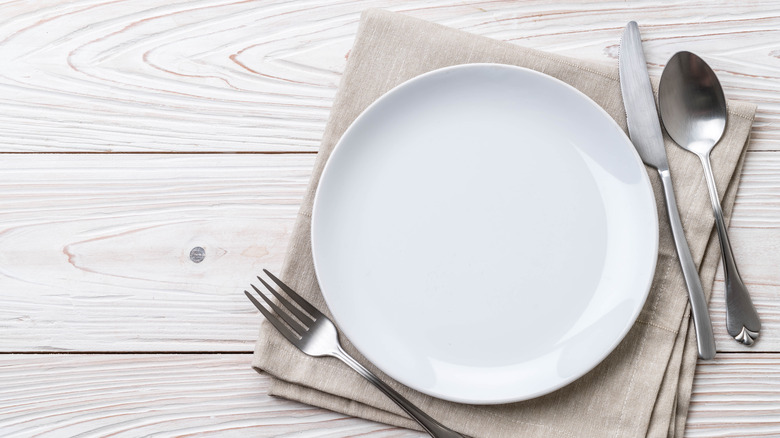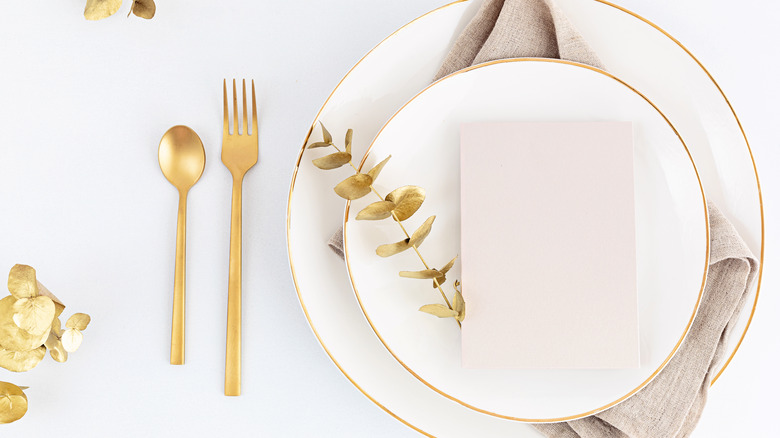Here's The Smart Way To Remove Scratches From Your Dishes
White dinnerware is classic. It matches virtually any dining room aesthetic and can appear country-casual, sophisticated and formal, and everything in between. The only downside to white china is the wear and tear that frequent use can inflict upon the dishes. If you've been using your white plates for a few years, you're likely to notice little grey scratches and scuffs left behind from forks and knives. When this happens, you might be tempted to retire that set of dishes for "just family" use and buy a new set for formal or entertaining purposes. But what if we told you that you could restore those white plates and bowls back to their original glory with very little money and not-herculean effort?
It's true! All you'll need is a soft rag or sponge, a little bit of water, and one of the following mild abrasives: baking soda, cream of tartar, or Barkeeper's Friend (via The Kitchn).
How to remove scratches from your white dishes
Whether you are using a rag or a sponge, you will want to wet it a bit so that it is damp. Then, add just enough water to your abrasive powder of choice to create a paste. Use the sponge or rag to rub the paste over the scuffed plate in circular motions with a fair amount of force (don't push too hard, but a little bit of elbow grease will help). After a little while, those gray marks should appear perfectly white again!
Why does it work? According to Wonder How To, the little scratches on white plates caused by silverware appear gray because they collect food and dust particles, not because your dishes are actually gray underneath the enamel. Therefore, thoroughly cleaning these little scrapes with an abrasive fine enough to reach into the marks and lift out any residues solves the problem at the source.
It is worth noting that if you feel your scratches are deeper or wider than tiny scuffs, choosing Barkeeper's Friend (the powder, not the liquid) may be your best bet, as it is a bit stronger than baking soda or cream of tartar (via Mom Outnumbered). If, however, your dishes are truly chipped or damaged, you should stay away from anything abrasive, as it could further damage the dish (via Wonder How To).

